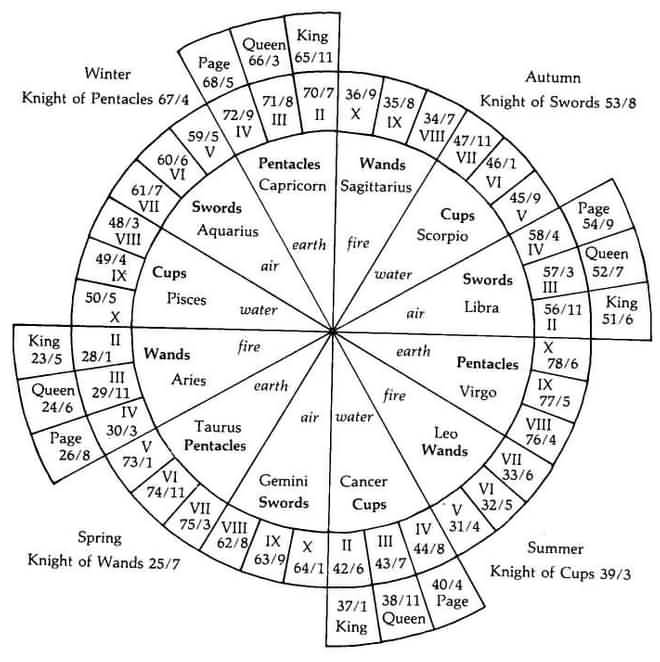|
|
Numerology
...................................................................................................................................................................................................................................................................................
Numerology is any study of the purported divine, mystical or other special relationship between a count or measurement and life. It has many systems and traditions and beliefs. Numerology and numerological divination by systems such as isopsephy were popular among early mathematicians, such as Pythagoras, but are no longer considered part of mathematics and are regarded as pseudomathematics by modern scientists.

Circle Tarot Numerology
HISTORY
Modern numerology often contains aspects of a variety of ancient cultures and teachers, including Babylonia, Pythagoras and his followers (Greece, 6th century B.C.), astrological philosophy from Hellenistic Alexandria, early Christian mysticism, early Gnostics, the Hebrew system of the Kabbalah, The Indian Vedas, the Chinese "Circle of the Dead", Egyptian "Book of the Masters of the Secret House" (Ritual of the Dead).
Pythagoras and other philosophers of the time believed that because mathematical concepts were more "practical" (easier to regulate and classify) than physical ones, they had greater actuality. St. Augustine of Hippo (A.D. 354–430) wrote "Numbers are the Universal language offered by the deity to humans as confirmation of the truth." Similar to Pythagoras, he too believed that everything had numerical relationships and it was up to the mind to seek and investigate the secrets of these relationships or have them revealed by divine grace. See Numerology and the Church Fathers for early Christian views. However, that does not mean that Pythagoras had coined himself the system one calls numerology. Pythagoras had only paved the way to the observation of numbers as archetypes rather than mere numerals.
In 325 A.D., following the First Council of Nicaea, departures from the beliefs of the state Church were classified as civil violations within the Roman Empire. Numerology had not found favor with the Christian authority of the day and was assigned to the field of unapproved beliefs along with astrology and other forms of divination and "magic".[citation needed] Despite this religious purging, the spiritual significance assigned to the heretofore "sacred" numbers had not disappeared; several numbers, such as the "Jesus number" have been commented and analyzed by Dorotheus of Gaza and numerology still is used at least in conservative Greek Orthodox circles. Numerology is prominent throughout Sir Thomas Browne's 1658 literary Discourse The Garden of Cyrus. Throughout its pages the author attempts to demonstrate that the number five and the related Quincunx pattern can be found throughout the arts, in design, and in nature - particularly botany.
Modern numerology has various antecedents. Ruth A. Drayer's book, Numerology, The Power in Numbers (Square One Publishers) says that around the turn of the century (from 1800 to 1900 A.D.) Mrs. L. Dow Balliett combined Pythagoras' work with Biblical reference. Then on Oct 23, 1972, Balliett's student, Dr. Juno Jordan, changed Numerology further and helped it to become the system known today under the title "Pythagorean", although Pythagoras himself had nothing to do with the system.
|
|